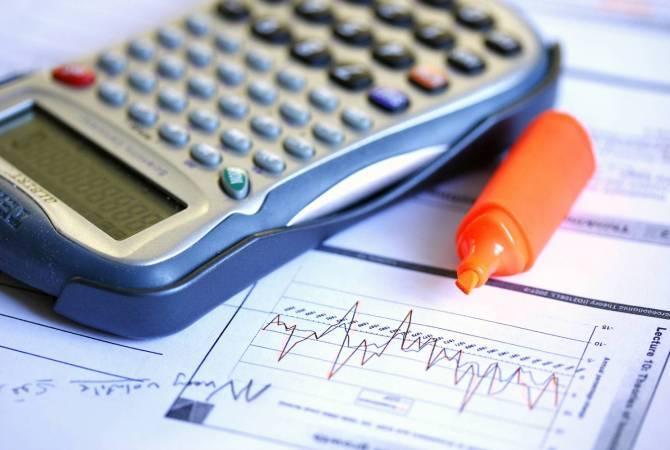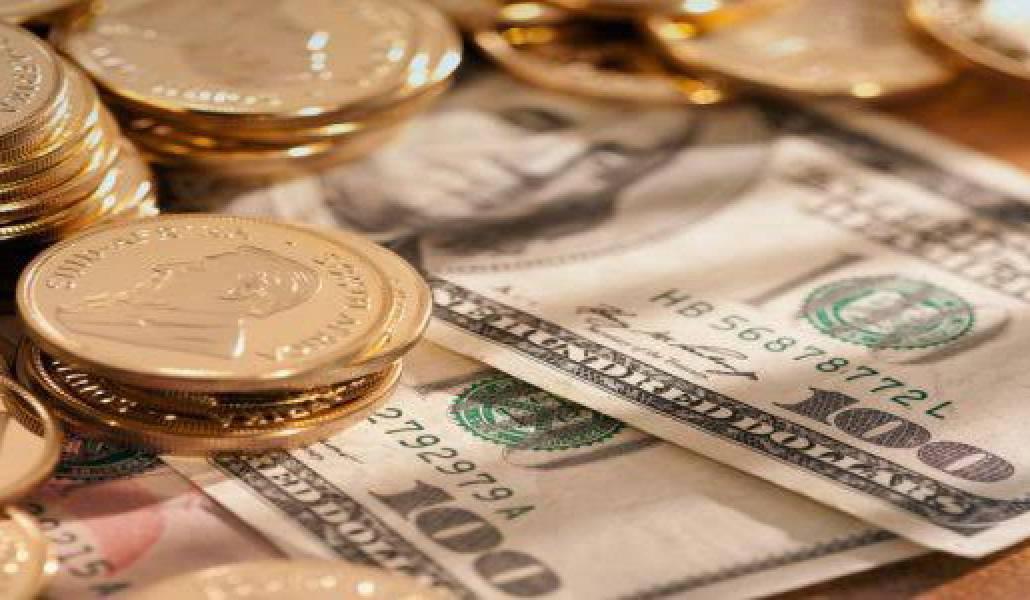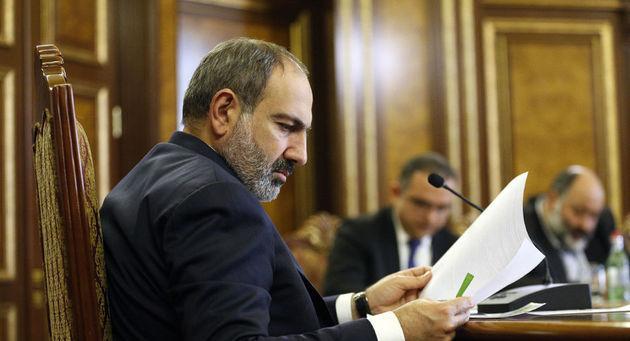Economic crisis in Armenia: Will Yerevan manage to set right priorities? Review by Caliber.Az
The positive trend emerging in some areas of Armenia's economy this spring was very short-lived: in July, economic activity declined by 8.3%. The greatest slowdown was recorded in trade and services, where positive dynamics were observed recently due to the inflow of newcomers. Most importantly, in July, there was a drop in foreign trade - the main resource, which, according to the calculations of the Armenian government, had to provide good statistics.

Meanwhile, Armenian Prime Minister Nikol Pashinyan spoke about the prospects of growth in trade with the EAEU countries during a meeting of the Supreme Eurasian Economic Council in Kyrgyzstan. The other day the Armenian government presented the medium-term economic development program, according to which the objective is to ensure minimum annual GDP growth at the level of 7% by 2026, and with a favorable external environment even up to 9%. There are also plans to reduce the unemployment rate in the country to less than 10% in the next few years, whereas at present it stands at 30%.
But how realistic are these intentions and can Armenia count on sustainable economic development without a radical change in foreign policy, based on territorial claims to its neighbours and revanchism?
So far, in any case, despite all the attempts to reanimate the post-pandemic economy of Armenia, which suffered a crushing military defeat in 2020, the government of "reformers" has not managed to overcome the long-standing barriers that have prevented the republic from fully integrating into the economic and infrastructure space of the region for three decades. The lack of involvement in the regional system of division of labour, the lack of access to transportation hubs and sources of affordable energy due to a stubborn unwillingness to normalize diplomatic, trade, and economic relations with Türkiye and Azerbaijan have had an adverse effect on reducing profitability and the rise in production costs, not to mention the reduction in export opportunities for the "country of stones" for decades. After Azerbaijan's victory in the Second Karabakh War, Armenia also lost its ability to extract minerals, use arable land, pastures, and the irrigation potential of the occupied territories. For three decades, the unpunished plundering of Azerbaijan's natural riches provided at least a quarter of the raw materials for the industrial, food, processing, and mining sectors of the aggressor country. Having been deprived of access to Karabakh's natural resources for the past two years, the republic has faced irreparable resource losses, the replacement of which by imported raw materials has multiplied the costs of Armenian enterprises.
On the other hand, the lack of stable sources of foreign currency income makes the government of the "apricot" republic increase borrowing from international donor agencies year by year: on the whole, during the government of Nikol Pashinyan, its national debt has increased by more than 45% and now exceeds $9.97 billion. In particular, in 2021, Armenia's national debt rose by $1.3 billion, or 16%, and in January-July 2022, by another $748.36 million. Moreover, most of the foreign borrowings aimed to repay the budget deficit were embezzled and had almost no impact on the financing of the real economy. The latter is not surprising, since the narrow domestic market, low solvency of the population, corruption, lack of human resources, and outflow of qualified specialists hinder the prospects of attracting foreign investment to the industrial sector.

Another negative factor causing serious damage to the economy and social stability in Armenia is related to the sanctions pressure on Russia, which is shrinking the Russian labour market and consequently reducing the volume of remittances from Armenian migrant workers. All this further reduces effective demand in the country's consumer market, increasing unemployment and inflationary pressures. According to the National Statistical Committee (NSC) of Armenia, the Consumer Price Index for 500 types of goods in July 2022 increased by 9.3% compared to July 2021. Moreover, according to Tatul Manaseryan, head of the Alternative Research Center, a member of the Eurasian Expert Club, the inflation growth in the segment of essential foodstuffs exceeded 20%. As the expert points out, the Armenian government does not advertise these figures, and while the consumer market of the country is in absolute chaos, the pricing process remains without the attention of both the Ministry of Economy and the Competition Protection Commission.
Due to these objective reasons, most international analysts and experts in the country believe that Armenia will not be able to achieve the sustainable high growth rates predicted by the government in the coming years. Thus, the International Monetary Fund (IMF), which estimated the growth prospects of its economy in 2021 at 1%, this spring had to worsen again its forecasts for 2022 from 5,5 to 1,5%, i.e. almost four times. Equally critical were the assessments of the experts of the Fitch rating agency: the annual GDP figures for Armenia were reduced from 5.3% to 1.3%. Experts from the European Bank for Reconstruction and Development have voiced similar figures - they expect Armenia's GDP to fall from 5.3% to 1.5%.
However, Yerevan still has illusions about the bright future of the republic, naively assuming to get ahead while maintaining dubious foreign policy principles - territorial claims to its neighbours, non-recognition of state borders, revanchist aspirations, etc. The Armenian government's bright forecasts are also based on the country's trade growth figures for the first seven months of this year. Speaking at a meeting of the Eurasian Economic Council in Cholpon-Ata, Kyrgyzstan, Prime Minister Nikol Pashinyan cited the high figures for trade turnover between EAEU countries. In particular, Armenia managed to reach 33.6% growth by the end of the first half of 2022, i.e. over $1.733 billion. However, the Armenian Premier neglected to mention that about 94% of the country's turnover was in the Russian market, with Russian imports accounting for two-thirds of the trade. However, Armenian exports to Russia are rather unstable, especially given the projected decline in purchasing power of Russian enterprises and citizens amid sanctions pressure. Trade with Belarus, Kazakhstan, Kyrgyzstan and Tajikistan barely exceeded $81 million, which in itself indicates the insignificant importance of Armenia as a trade partner. This undiversified foreign trade promises big problems for Yerevan in case of the slightest change in the global situation - demand for ore concentrates fresh and canned fruits and vegetables, brandy, processed diamonds, etc.
As a matter of fact, these negative changes are already making themselves felt: according to the NSC data as of August 25, economic activity in Armenia decreased by 8.3% in July, while in June it recorded a growth of 16.8%. According to the NSC, the positive impact of the inflow of tourists and relocators on the Armenian economy has gradually decreased, especially in trade (a 9.3% drop), services and tourism. A decline is also recorded in the area of foreign trade, which has been so far successful: in July, the total foreign trade turnover decreased by 0.5%, while exports decreased by 43.8% (month-on-month).

Meanwhile, the internal political crisis in Armenia is escalating, while there are no signs of a change for the better. On the contrary, in the last few days, the discontent of the people and entrepreneurs has resulted in protests: drivers of heavy goods vehicles blocked the Yerevan-Meghri highway in the Sisian region, protesting against the weighing of trucks; employees of the Petak shopping centre also held a protest, since after the explosion in the Surmalu shopping centre the fair was suspended and has not yet resumed its work. The Armenian media also write about the dissatisfaction of farmers, in particular grape growers, with low procurement prices; farmers also experience a shortage of irrigation water, cheap fodder for livestock, etc.
The solution to many of Armenia's economic problems is quite affordable and simple. It is enough to abandon revanchist ideas and create conditions for the opening of the Zangazur corridor, or at least to stop preventing its launch. This would bring considerable dividends to the Armenian state budget and, most importantly, would enable the country's business circles to fully participate in trade and economic exchanges and transport projects in the region.








